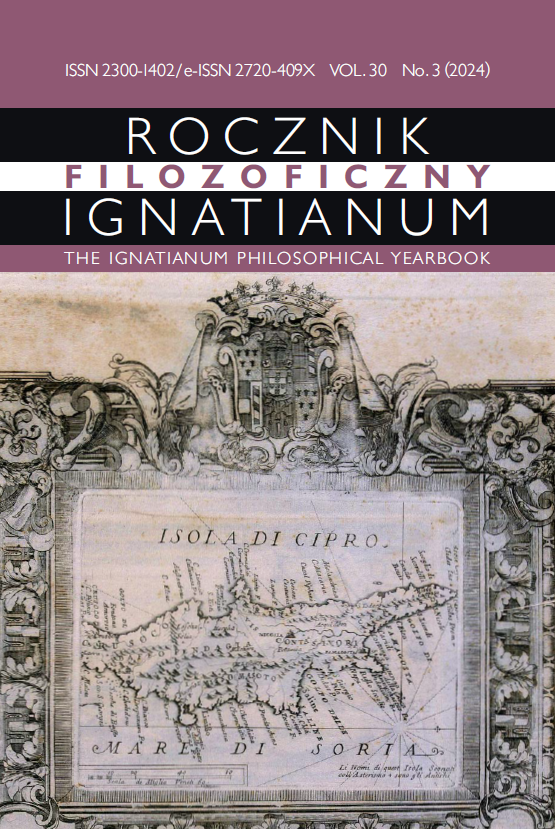Polemika profesorów Fryderyka Skarbka i Feliksa Bentkowskiego dotycząca „dążności ludzi do bogactw i polepszenia bytu” na łamach „Pamiętnika Warszawskiego Umiejętności Czystych i Stosowanych” (1829)
Jako wyraz niepokojów i obaw związanych z upowszechnianiem w kulturze polskiej nowych wzorów osobowych inspirowanych franklinizmem
Abstrakt
Celem artykułu jest zrekonstruowanie oraz zaprezentowanie w szerszym kontekście kulturowym bardzo mało znanej w literaturze przedmiotu polemiki rozgorzałej w roku 1829 na łamach „Pamiętnika Warszawskiego Umiejętności Czystych i Stosowanych” (t. 1) między dwoma profesorami Królewskiego Uniwersytetu Warszawskiego. Autorem pierwszego z polemicznych artykułów pt. Prośba o rozwiązanie wątpliwości był Feliks Bentkowski. Kolejny tekst, zatytułowany Odpowiedź na prośbę o rozwiązanie wątpliwości umieszczoną w zeszycie Pamiętnika Warszawskiego, wyszedł spod pióra hr. Fryderyka Skarbka. Impulsem do podjęcia polemiki stał się dokonany przez Skarbka przekład pracy Charles’a Ganilha pt. Dykcjonarz ekonomii politycznej własnymi uwagami znacznie pomnożony.
Pomimo iż samo dzieło Ganilha przełożone przez Skarbka odnosiło się do zagadnień ściśle związanych z ekonomią polityczną, to jednak wspomniana polemika pośrednio wiązała się także z ważnymi zjawiskami dotyczącymi ówczesnej kultury polskiej, takimi jak m.in. upowszechnianie się nowych (obcych) wartości, postaw, obyczajów, a także nowych wzorów kulturowych. W niniejszym artykule spojrzano na polemiczne wystąpienia Bentkowskiego i Skarbka w szerokim kontekście kulturowym, dostrzegając w nich echa ówczesnych dyskusji i sporów społeczno-kulturowo-cywilizacyjnych, a także odbicie obaw i niepokojów charakterystycznych dla pewnej części przedpowstaniowego społeczeństwa polskiego. Ponadto wspomniana polemika (pośrednio) może być także interesująca w perspektywie recepcji idei Franklinowskich na ziemiach polskich w pierwszych dekadach XIX wieku. Materiał źródłowy stanowią przede wszystkim dwie polemiczne publikacje z roku 1829. Jednak ze względu na to, że owa polemika została tutaj osadzona w szerszym kontekście kulturowym, sięgnięto także do innych tekstów kultury z czasów Królestwa Polskiego, w tym do dzieł stricte literackich.
Copyright (c) 2024 Uniwersytet Ignatianum w Krakowie

Utwór dostępny jest na licencji Creative Commons Uznanie autorstwa – Bez utworów zależnych 4.0 Międzynarodowe.
Rocznik przyjmuje do druku wyłącznie materiały, które nie wchodzą w żaden konflikt interesów, żaden konflikt z prawem autorskim itp. Redakcja prowadzi działania przeciw: plagiatom, ghostwriting1, guest/honorary authorship2 itp. Autor pracy zbiorowej, który jest pierwszy na liście, bierze na siebie odpowiedzialność i ma obowiązek przedstawić wkład wszystkich współautorów. Jeśli publikacja powstała dzięki dedykowanym środkom finansowym, należy ujawnić to np. w Podziękowaniu, przypisie itp. Ew. przedruki wymagają jawnego zgłoszenia i okazania odpowiedniego pozwolenia wydawniczego. Autorzy / Recenzenci nierzetelni narażają się na reakcję właściwą stosownym instytucjom.
______
1 Ma to miejsce, gdy osoba mająca istotny wkład jest pominięta na liście Autorów czy w Podziękowaniu.
2 Zachodzi, gdy na liście autorskiej pojawia się osoba mająca znikomy/żaden udział w pracy.





